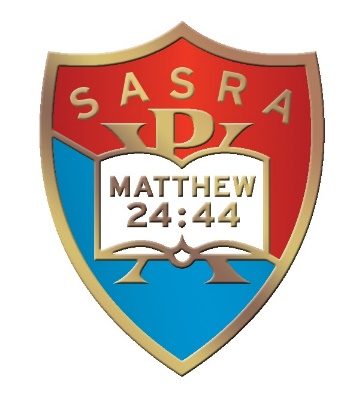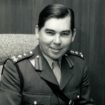Born on December 9th 1890, Arthur Francis Smith grew up in a loving Christian home. His life was surrounded by prayer, and he could not think of a day when he did not have faith in Christ. In 1910, he commissioned from Sandhurst into the Coldstream Guards and the beginning of his service was spent in England and Egypt. Besides maintaining his sporting interests, he ran Bible studies for his soldiers, and his military acumen was so obvious that early in World War One he became Adjutant of the 3rd Battalion, the Coldstream Guards.
At the outbreak of war, his father gave him a small Bible. Written on the flyleaf were the verses, ‘For you have made the Lord… your dwelling place. No evil will befall you… For He will give His angels charge concerning you, to guard you in all your ways’ (Psalm 91:9-11).
His father recommended that Arthur Smith always carry the Bible in his pocket, as he himself had done while serving in the South African War. Taking this practical advice to heart, Arthur Smith had a pocket tailored into his trousers for this very purpose! Two experiences illustrated the absolute truth of this Scripture to him.
In November 1914, while Smith was reconnoitring a route in the middle of the night, a German shell burst very close, quickly followed by another that caught him on the hip and hurled him across the road.
As he lay wounded at the dressing station en route to hospital, he wondered why a shell that could hurl him across a road had not done more damage. When he pulled out his Bible, he discovered that it had caught the main force of the shrapnel and had diverted the shell from its course so that, instead of being wounded very seriously, he only received a flesh wound.
It was only when he reached a hospital that he discovered the shrapnel had cut through his Bible as far as, and had stopped exactly at, Psalm 91, the psalm of his father’s choosing.
Then in August 1917, while on the staff of XIV Corps, Arthur Smith and two other staff officers were sent to Langemarck to carry out a reconnaissance. Approaching the trenches furthest forward, they were caught in a German artillery bombardment.
There was a terrific bang, something seemed to kick his leg, and he found himself knocked to the ground by the explosion. As his companions picked themselves up, Arthur Smith found himself unable to do so. Looking down at his leg he saw a considerable portion of his leg missing and his foot swinging about, seemingly attached by little more than his puttee, a cloth which was tightly wound around the legs of soldiers for support and protection.
At the dressing station, aptly named Mendingem, Arthur Smith’s final instruction to the surgeon was, ‘Don’t take that foot off, doctor; give it a chance.’ On waking from the anaesthetic, he was relieved to find he was still in possession of his left foot! A couple of days later at the General Hospital at Rouen, the surgeon examined him and said, ‘I can leave your foot on, on chance; but you may get blood-poisoning with fatal results: or I can amputate and you will get on all right. Let me know tomorrow morning what you feel about it.’
This ultimatum did not disturb Arthur Smith as he thought on the words of the Bible in Romans 8:28. ‘And we know that God causes all things to work together for good to those who love God, to those who are called according to his purpose.’ Later that day he took his Daily Light, a book of Bible verses for each day of the year, and opened it to that day’s reading. He was staggered when the first words he read were, ‘The Lord shall be thy confidence and shall keep thy foot from being taken’ (Prov. 3:26). That was sufficient encouragement and, thanking God, he closed the book. He kept his foot, was passed fully fit in 1925, and in his own words, ‘wobbled my way in the Army till I retired in 1948.’
This account of Lieutenant General Sir Arthur Smith’s life has been reprinted with permission from the book The Fight of Faith, Lives & Testimonies From the Battlefield which can be purchased at www.sasra.org.uk/shop or as a Kindle Edition.
The beginnings of SASRA
(The Soldiers’ And Airmen’s Scripture Readers Association)
In 1804 Sergeant William Rudd (Royal Artillery) found himself posted to Woolwich Barracks in London. There he founded a reading room for soldiers that provided a quiet space for devotional study, reading and writing. However, it was Rudd’s action in 1816 that grabbed gospel headlines.
With Christ in mind, Rudd bravely put up a notice in the unit guardroom offering to loan a Bible or Christian literature to soldiers who requested this kind of support. While Rudd’s act provided an opportunity to evangelise, it was done ‘without permission’. The Commanding Officer gave Rudd a severe reprimand and threatened him with an overseas posting. Yet even in these painful moments, the Lord was at work. A Christian officer called Captain Maitland stood up for Rudd, and although he too was warned, Maitland’s father took his son’s case to the highest level.
After the dust had settled, it was clear the day belonged to the Lord. Bibles were sent to the garrison with orders they were to be placed in all the guardrooms and the hospital.
Nine years after Rudd posted his notice for Christ, the King’s Regulations authorised the issue of a Bible and prayer book for all personnel who asked for
it. However, until soldiers could read, additional measures were required. Diligently, the Chaplain General and other Christian officers obtained permission for a simple plan. Literate ex-servicemen with faith in Christ were identified and then deployed to the barrack rooms where they read the Scriptures to the troops. Uniquely, SASRA’s ministry continues today ‘behind the wire’. Scripture Readers befriend military personnel and demonstrate practical faith for Christ. They offer support to the chain of command and to Chaplains too.


